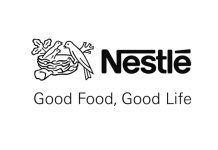COLUMBUS, Ohio – To celebrate its 26th anniversary, on May 1 Columbus coffee roaster Crimson Cup Coffee & Tea will offer craft Nitro cold brews for $1 at its coffeehouses in Clintonville and Upper Arlington.
The company also has released a new video that highlights its commitment to creating sustainable relationships with coffee farmers and independent coffee houses.
Founded by Greg Ubert in Columbus in 1991, Crimson Cup has grown from a one-man operation into a nationally recognized leader in the $26 billion specialty coffee industry.
The company was named the 2016 Macro Roaster of the Year by coffee trade publication Roast magazine. Its award-winning coffees include Ethiopian Kossa Kebena, which won a 2017 Good Food Award.
“Since we introduced Nitro cold brew to Columbus in 2012, it’s become one of our most popular products,” Ubert said. “We couldn’t think of a better way to celebrate than to share this innovative beverage with the community that’s done so much for us.”
To create Nitro, Crimson Cup infuses craft cold brew concentrate with nitrogen gas under pressure. Dispensed from a tap, this frothy beverage has the mouth feel of a fine milk stout and normally sells for $4.25. The $1 special on any regular-sized Nitro cold brew is good May 1 only at the Crimson Cup Coffee Houses at 4541 North High Street in Clintonville and 2468 Northwest Boulevard in Upper Arlington.
In honor of its anniversary, Crimson Cup also engaged local agency Serif Creative to develop a video that highlights its partnerships with coffee farmers and independent coffee houses.
“Our motto is ‘Coffee and Community,’” Ubert said. “Our vision is to establish meaningful relationships that inspire healthy communities locally and globally.
“We work with local coffee businesses in 29 states, Guam and Bangladesh to create spaces where people can gather over coffee,” he said. “We also travel thousands of miles each year to seek out the world’s finest coffees and forge relationships with coffee farmers and their workers.”
“What usually is called a supply chain, we call a relationship chain,” he added. “We believe that we succeed only when our partners succeed.”





